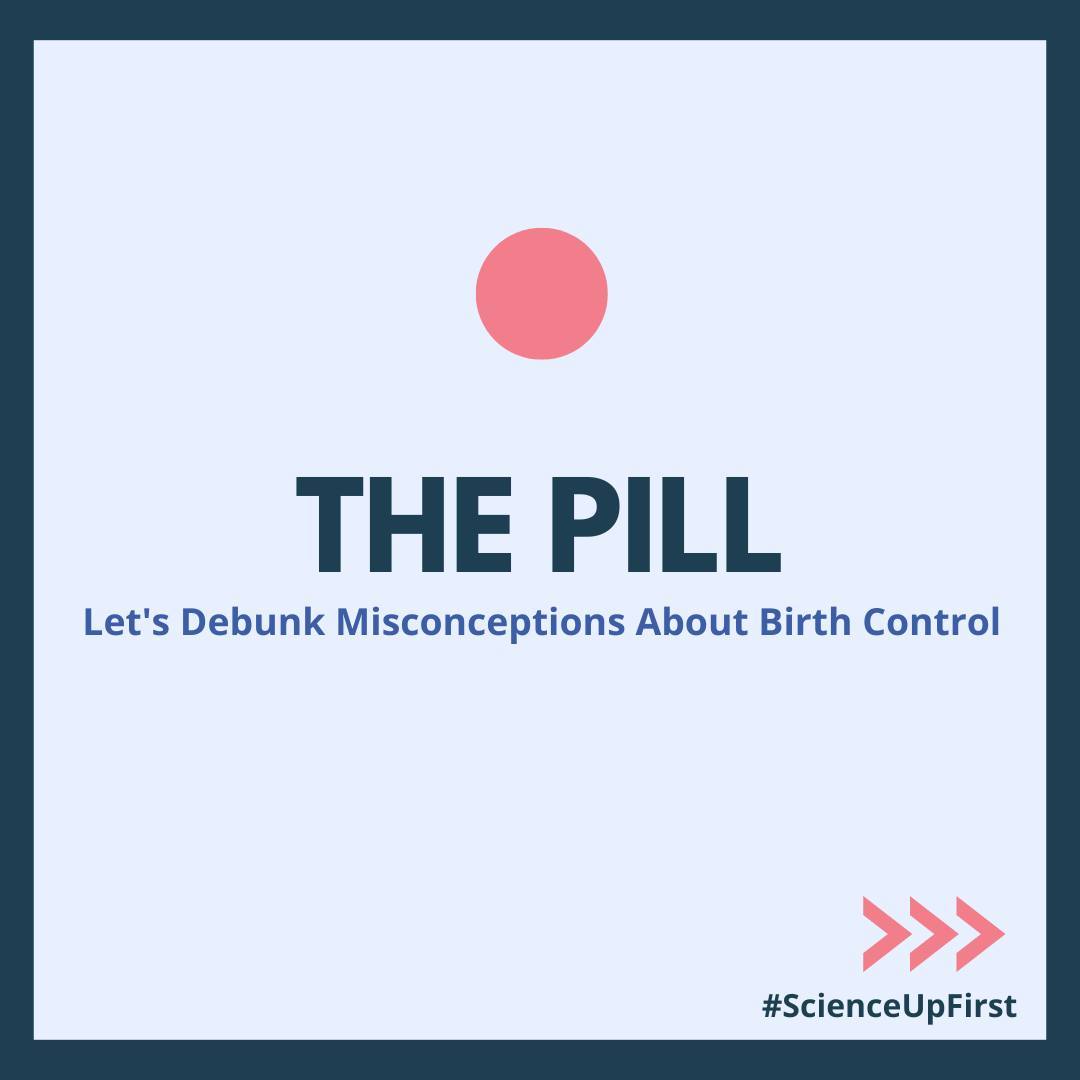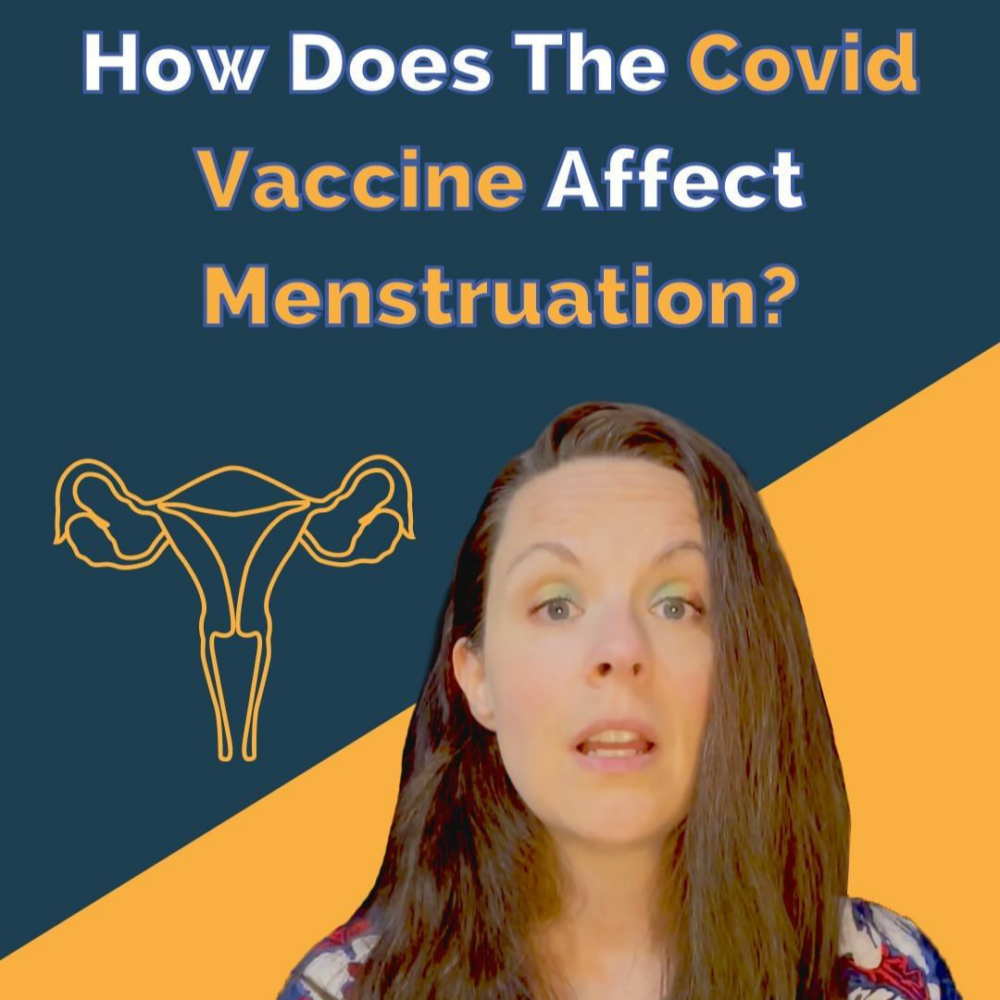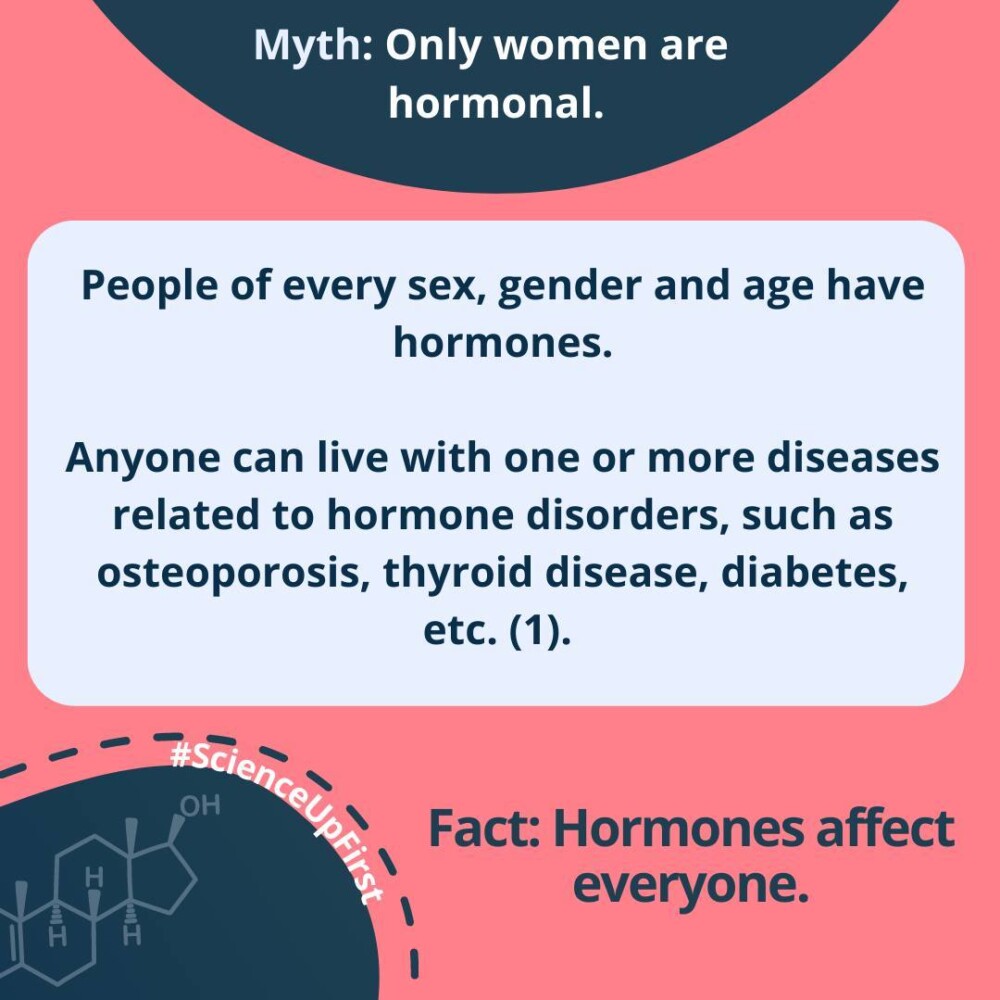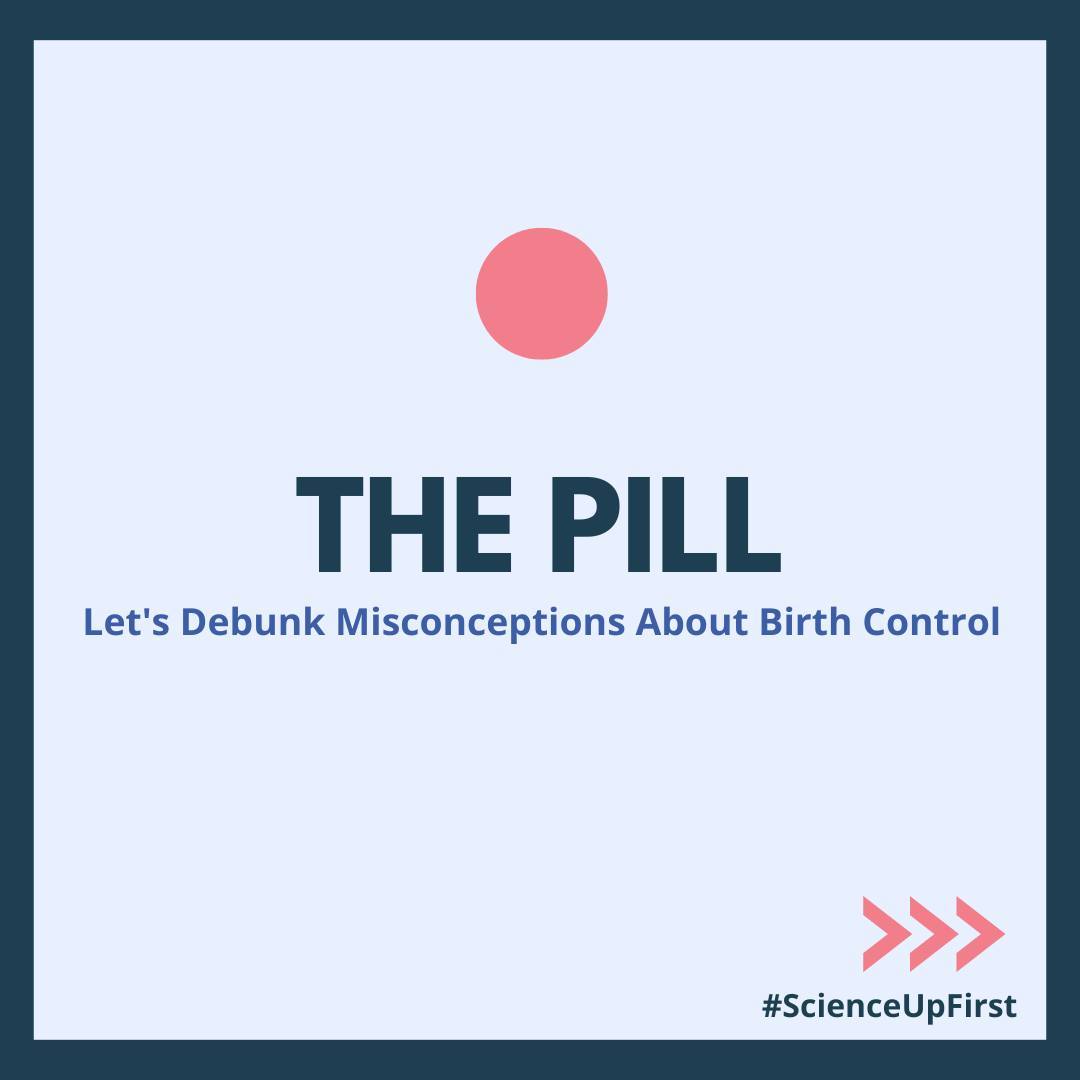
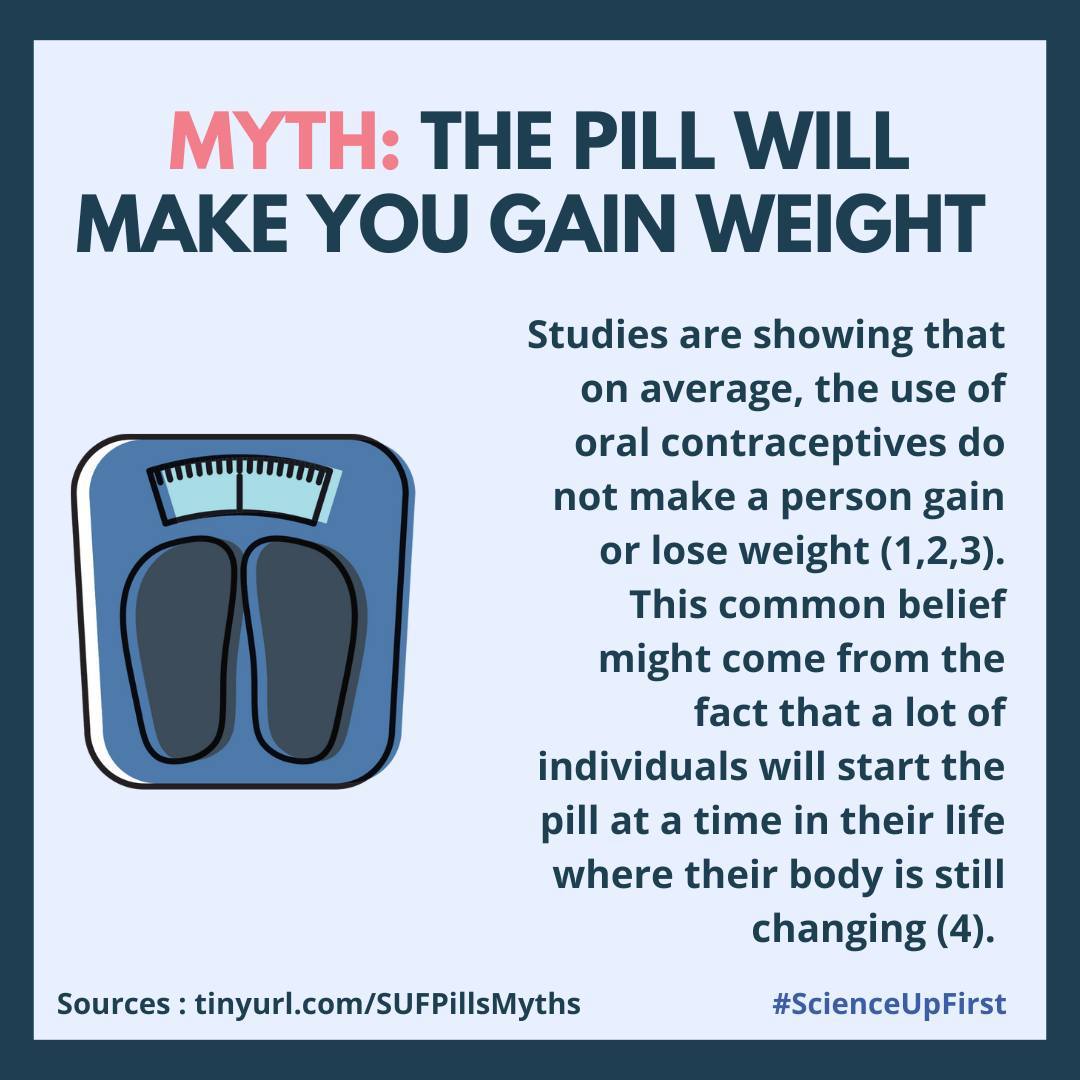
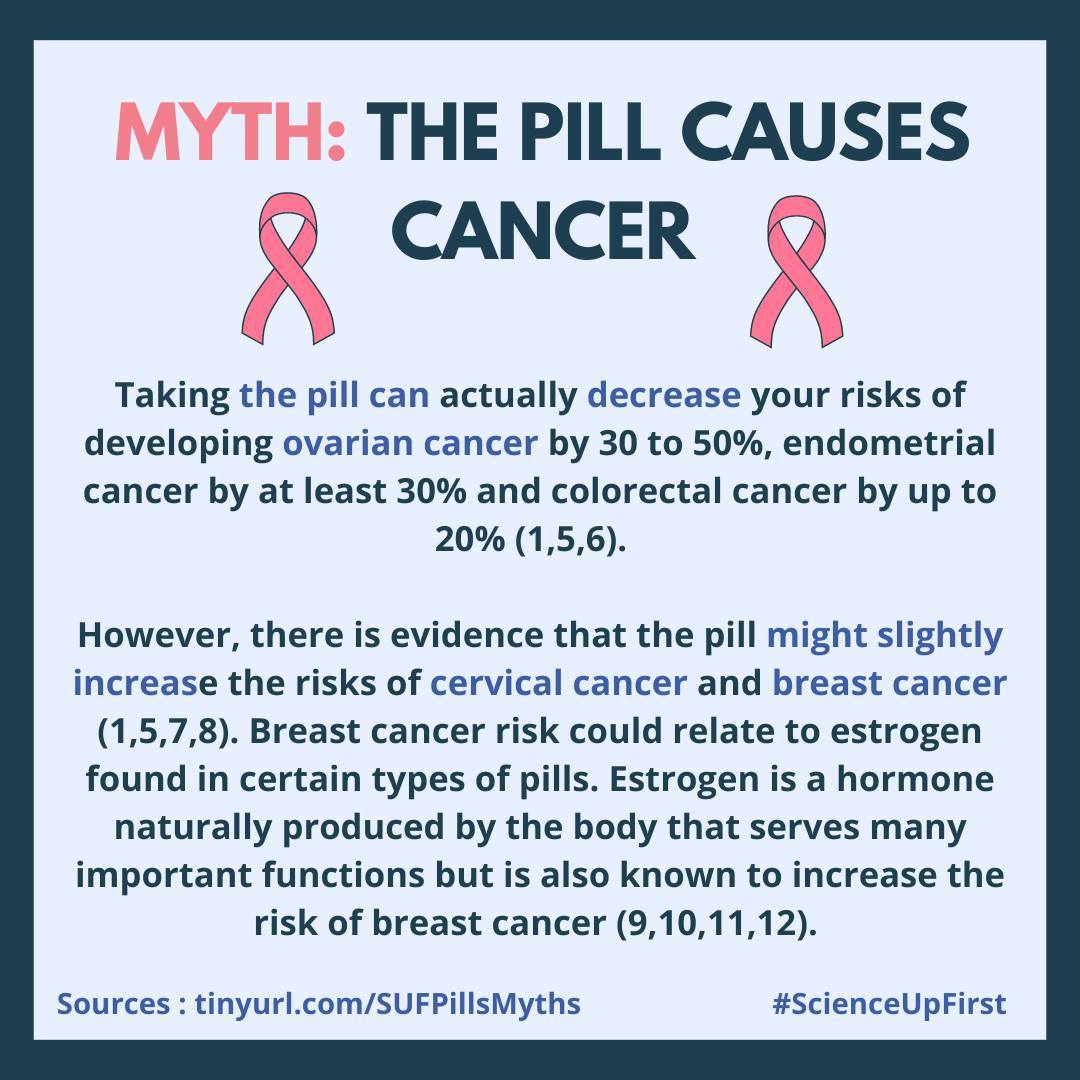
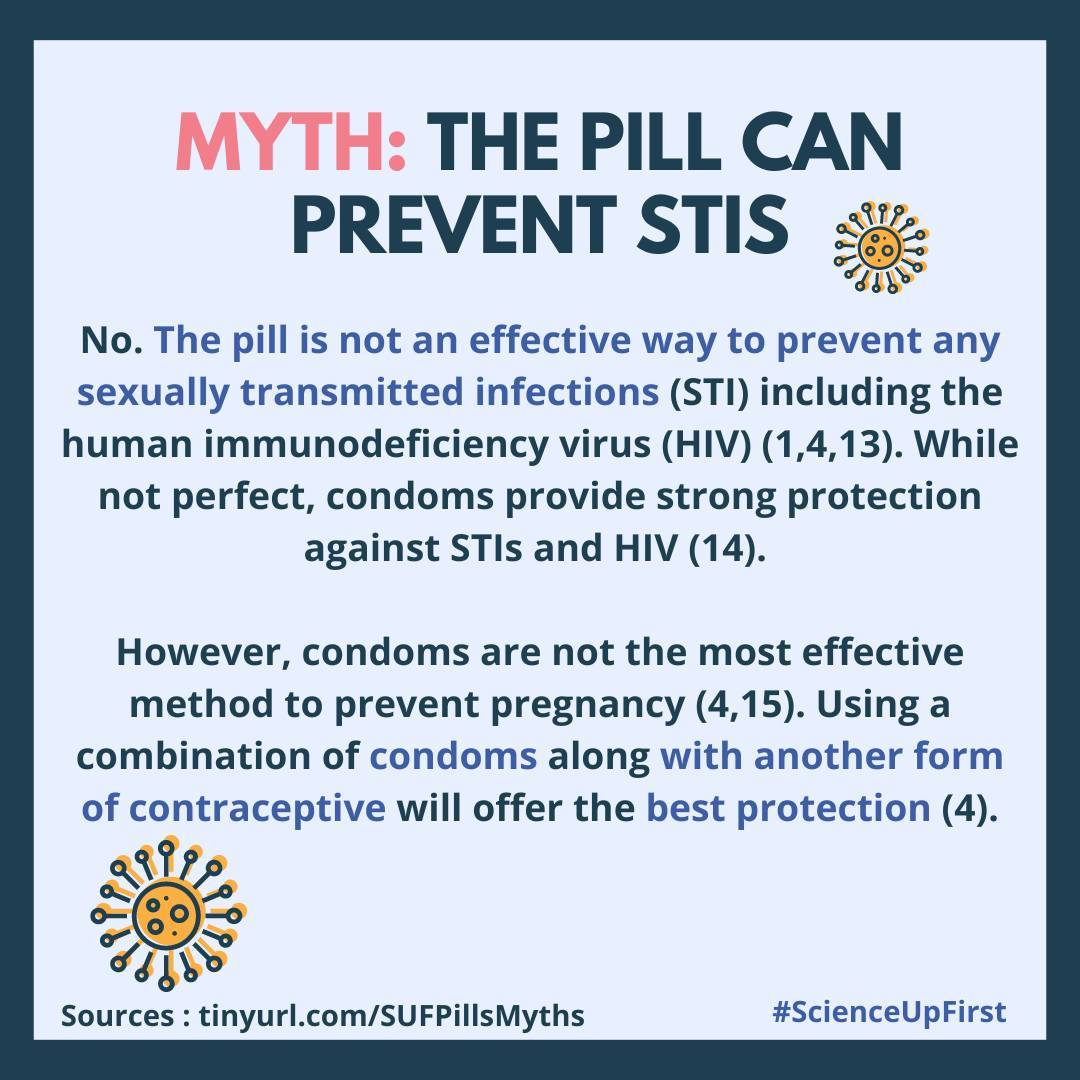
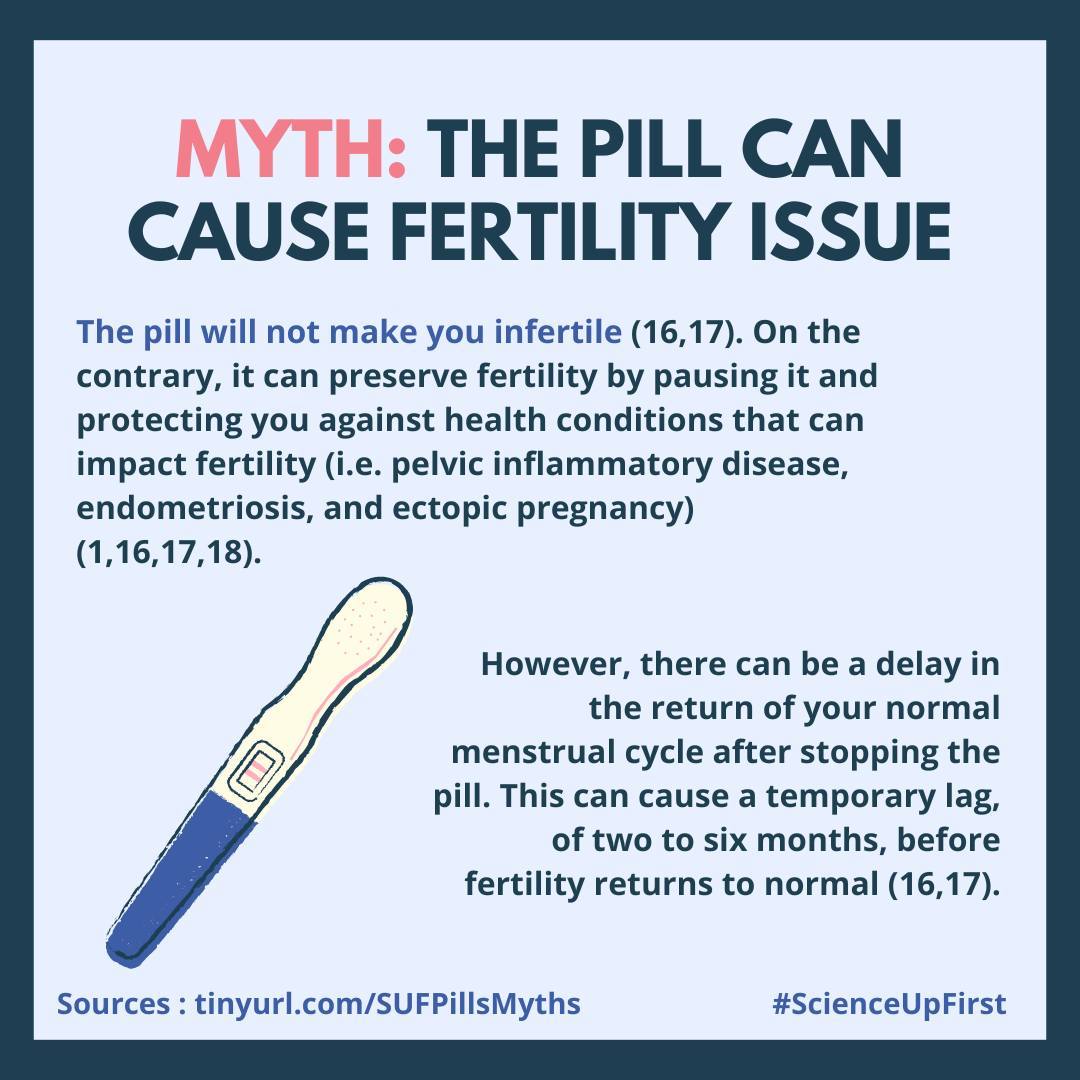
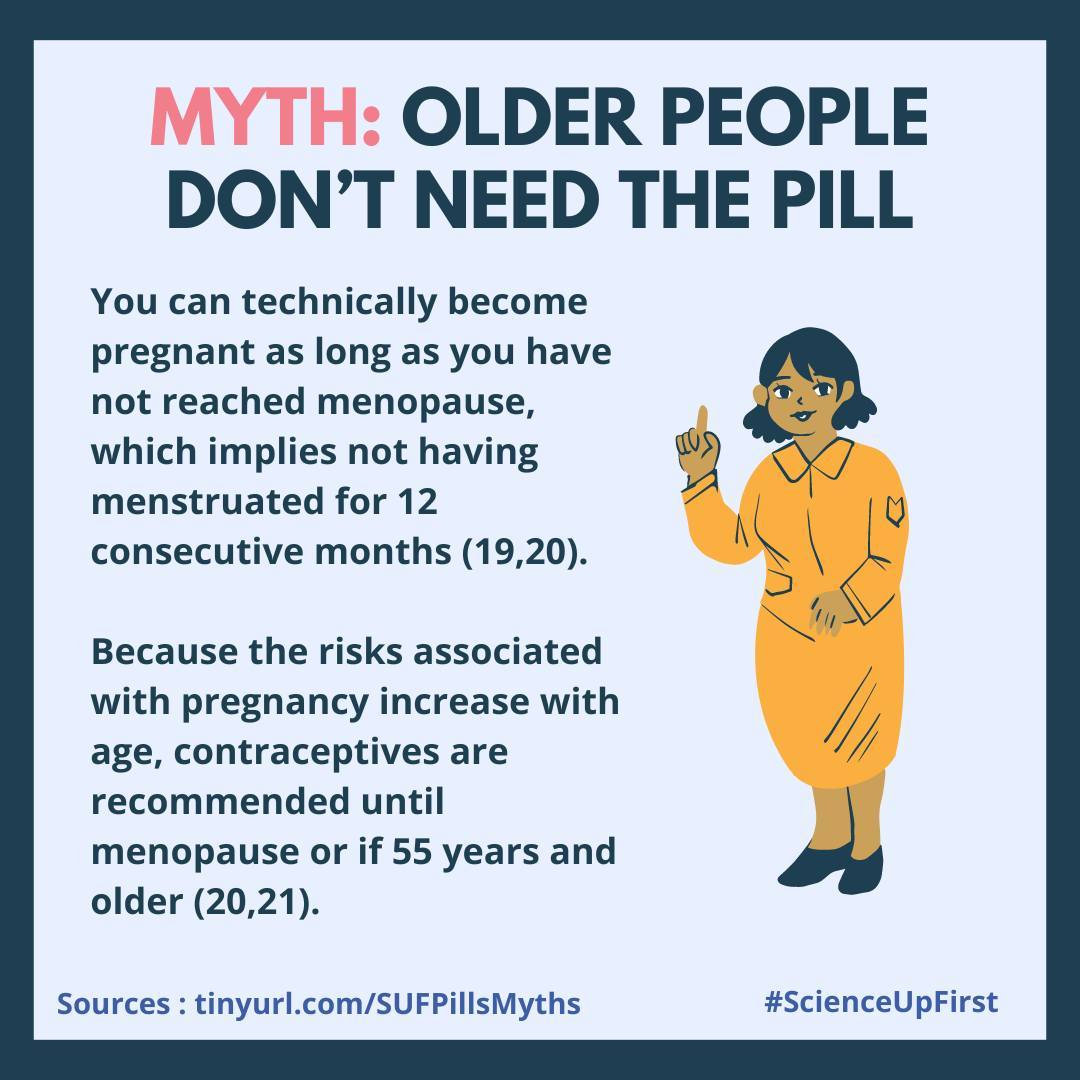
Oral contraceptive pills, commonly known as “the pill and “the minipill””, contain a combination of one to two hormones that will prevent ovulation and thus avoid unintended pregnancy (1,23).
In 2015, it was estimated that 75% of people capable of conceiving living in Canada had used this contraceptive method at least once in their life (24). Despite its widespread use, there are a lot of myths and misconceptions about it. Let’s debunk five of them:
- Pills do not cause significant weight gain.
- The pill might help prevent some types of cancer but might increase the chance of others.
- ONLY condoms can help prevent both pregnancy and sexually-transmitted infections (STIs).
- The pill does not permanently affect fertility, but might cause a delay when trying to conceive.
- Contraceptive methods are important for all ages.
Share our original Tweet!
Oral contraceptive pills contain one to two hormones that will prevent ovulation and avoid unintended pregnancy.
Despite its widespread use, there are a lot of myths and misconceptions about it.
We debunk five of them in this post https://t.co/q9TKS4oFcl#ScienceUpFirst pic.twitter.com/OeFlB4mju3
— ScienceUpFirst | LaScienced’Abord (@ScienceUpFirst) February 2, 2023
View our original Instagram Post!
View this post on Instagram
- Myths and facts about the Pill
- Effects of progestin-only birth control on weight
- Weight and Body Composition Changes During Oral Contraceptive Use in Obese and Normal Weight Women
- Birth Control Myths
- Oral Contraceptives (Birth Control Pills) and Cancer Risk
- Lifetime cancer risk and combined oral contraceptives: the Royal College of General Practitioners’ Oral Contraception Study
- Cervical cancer and hormonal contraceptives: collaborative reanalysis of individual data for 16,573 women with cervical cancer and 35,509 women without cervical cancer from 24 epidemiological studies
- The Influence of Hormonal Factors on the Risk of Developing Cervical Cancer and Pre-Cancer: Results from the EPIC Cohort
- Correcting Influencers about Cancer Risk and The Pill
- Breast Cancer Risk: Age at First Period
- Menstrual History
- Circulating sex hormones and breast cancer risk factors in postmenopausal women: reanalysis of 13 studies
- What Are the Risk Factors for Breast Cancer?
- Know the Facts – #GYT
- Condom Fact Sheet In Brief
- Effectiveness of Birth Control Methods
- Can Birth Control Cause Infertility?
- Return of fertility after discontinuation of contraception: a systematic review and meta-analysis
- No, Birth Control Can’t Cause Infertility — Here’s Why
- 10 common birth control myths debunked
- When Women Can Stop Using Contraceptives
- Contraception in women over 40 years of age
- Oral contraceptive use among women aged 15 to 49: Results from the Canadian Health Measures Survey | FR : Utilisation des contraceptifs oraux chez les femmes de 15 à 49 ans : résultats de l’Enquête canadienne sur les mesures de la santé
- Family planning/contraception methods | FR : Planification familiale/Contraception

